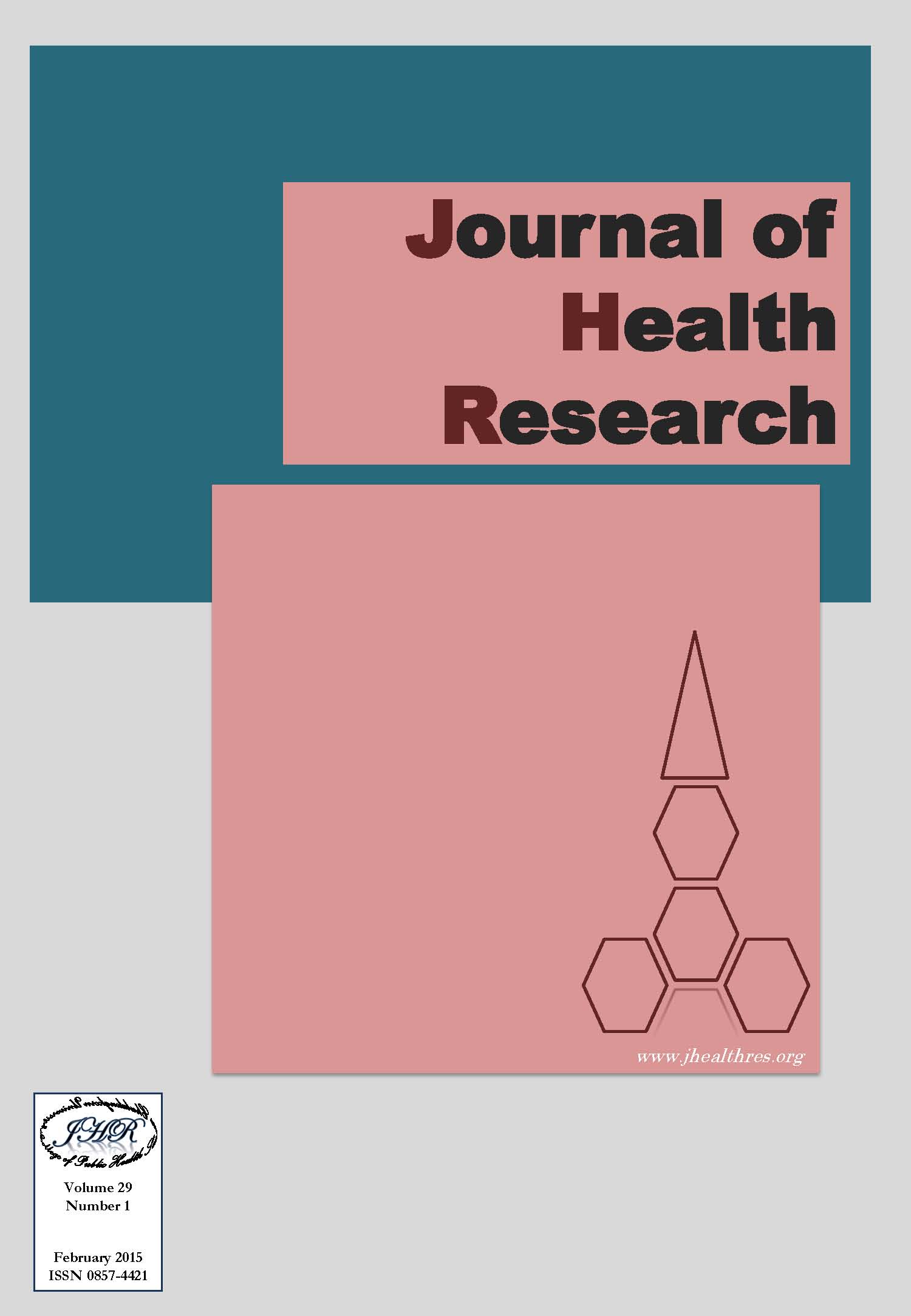Effect of a Tuberculosis Health Promotion Program on Medication Adherence among Tuberculosis Patients
Keywords:
Tuberculosis, Medication adherence, Health promotion program, IndonesiaAbstract
The purpose of this quasi-experimental study was to examine the effect of a tuberculosis health promotion program on medication adherence among patients with tuberculosis. Sixty-eight persons with tuberculosis, recruited from the Klari, Karawang public health center in West Java, Indonesia, were randomly assigned to an experimental or control group, with 34 persons assigned to each group. The participants in the experimental group participated in the Tuberculosis Health Promotion Program, whereas, those in the control group received conventional nursing care. Based on the Pender’s Health Promotion Model, the 8-week tuberculosis health promotion program comprised health education related to TB, personal counseling, group discussion and individual monitoring. The outcome was assessed by the 8-item Morisky Medication Adherence Scale. Data were analyzed using Dependent t-test and Independent t-test. The results indicated that after participating in the tuberculosis health promotion program, there was a significant improvement in medication adherence in TB patients in the experimental group which was shown by significant difference in mean score of medication adherence. In addition, after participating in the program, there was a significant difference in mean scores of medication adherence between the experimental group (=6.38, SD=0.85) and the control group (=3.64, SD=1.04), p<0.01.This TB health promotion program appears to be effective in improving medication adherence among TB patients.







